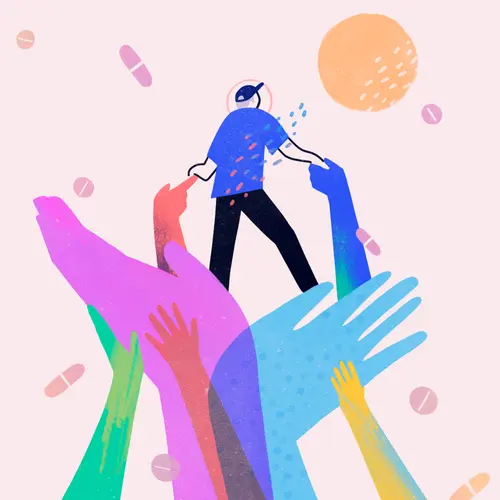Attention deficit hyperactivity disorder (ADHD) and anxiety are separate conditions, but for a lot of folks they come as a package deal. About half of adults with ADHD also have anxiety disorder. If you're one of them, the right treatment can improve your ADHD symptoms and ease your anxious feelings, too.
What to Expect From ADHD and Anxiety
When you have anxiety along with ADHD, it may make some of your ADHD symptoms worse, such as feeling restless or having trouble concentrating. But anxiety disorder also comes with its own set of symptoms, like:
- Constant worry about many different things
- Feeling on edge
- Stress
- Fatigue
- Trouble sleeping
Anxiety disorder is more than just having anxious feelings from time to time. It's a mental illness that can affect your relationships, work, and quality of life.
How to Tell Your ADHD and Anxiety Apart
Sometimes, anxiety comes as a result of ADHD. When that's the case, your worries are often about how much -- or how little -- you're able to get done. You're anxious about or overwhelmed by your ADHD.
When you have anxiety disorder on top of your ADHD, your worries are usually about a wide variety of things and not only tied to your ADHD struggles.
Talk to your doctor so the two of you can figure out where your anxiety is coming from. Some questions they may ask you are:
- Do you worry about things that don't make sense?
- Do you have a hard time controlling these worries?
- Are you getting good sleep?
- Are your fears and worries keeping you from doing your regular activities?
- Do you feel anxious at least three to five times a week for an hour or more a day?
- Have you had a big life event happen recently?
- Do any of your family members have a history of anxiety?
How to Treat ADHD and Anxiety
To zero in on the best way to treat ADHD and anxiety, your doctor will likely look at which condition affects you the most. It's possible that your treatment for ADHD may ease your anxiety, so you may only need to take ADHD medication.
When you get treatment for ADHD, it can:
- Cut your stress
- Improve your attention so you manage tasks better
- Give you mental energy to handle anxiety symptoms more easily
If your anxiety is a separate condition and not a symptom of ADHD, you may need to treat both disorders at the same time.
Some treatments can work for both ADHD and anxiety, such as:
- Cognitive behavioral therapy
- Relaxation techniques and meditation
- Prescription medications
Effects of ADHD Medication on Your Anxiety
The most common drugs that doctors suggest for ADHD are stimulants like methylphenidate and amphetamines. Even if you have anxiety, these meds may work well for your ADHD.
Anxiety is a common side effect of stimulants. Your doctor won't know how a medication will affect you until you take it, but its possible stimulants may make your anxiety symptoms worse.
If that's the case for you, your doctor may suggest other medicines, such as the non-stimulant medications atomoxetine (Strattera) or viloxazine (Qelbree).
Your doctor may also recommend antidepressants like:
- Bupropion (Wellbutrin)
- Desipramine (Norpramin)
- Fluoxetine (Prozac)
- Imipramine (Tofranil)
- Nortriptyline (Pamelor)
- Sertraline (Zoloft)
- Venlafaxine (Effexor)
High blood pressure drugs like clonidine (Kapvay) and guanfacine (Intuniv, Tenex) may also help.

